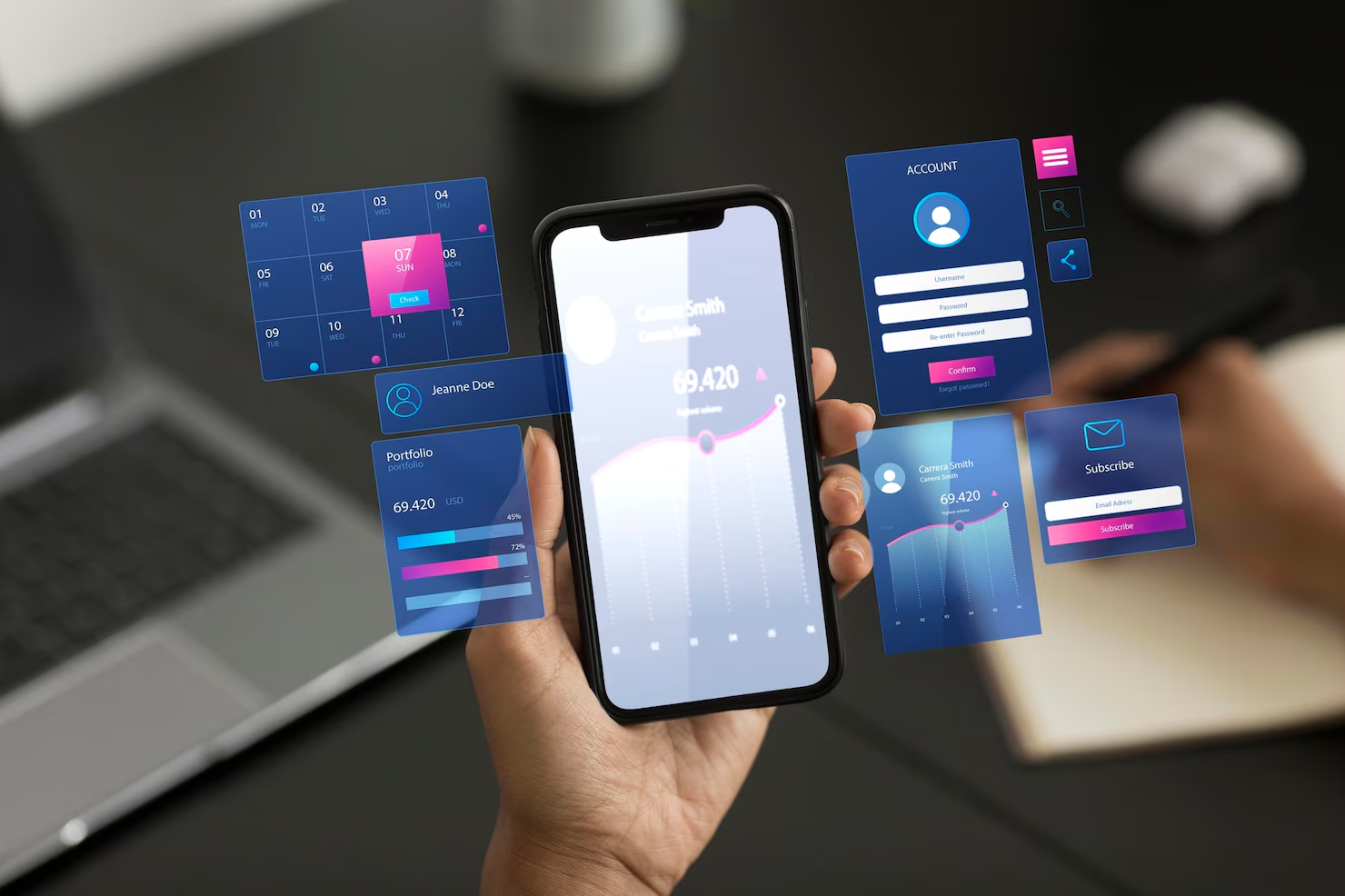You should also learn about the data protection laws in South Africa regarding apps prior to launching your app. Having a well-defined privacy policy of mobile apps in South Africa is not only a way to keep on the right side of the law, but also demonstrates to users that you value their trust.
The Importance of Mobile App Privacy Regulations South Africa
All applications gather user data in one way or another, but how that data is managed makes all the difference. Your app will respect that trust and remain transparent if you follow the mobile app privacy regulations South Africa. Let’s learn why these rules are important to all South African app developers and business owners.
Builds User Trust
When users believe their data is safe, trust increases. Things as simple as clear permissions and privacy rules that everyone can see make people feel valued, and that trust keeps them coming back.
Safeguards Legality
Ethical privacy practices reduce the risk of penalties, limit investigations, and build confidence in investors and users. They are like legal insurance. Time, money, and stressful legal work are saved by a small start-up effort.
Optimize Global Compliance
South African data protection laws for apps make it easier to comply globally. Businesses can operate across borders with confidence by following to accepted standards and avoiding conflicting data protection regulations.
Strengthens Brand Reputation
A business that safeguards its clients gets respect in addition to downloads. Setting privacy first shows integrity, which gives users the confidence to select and suggest your app.
Related Post: 5 Common Mistakes to Avoid When Developing a Mobile App in South Africa
What the POPIA Law Means for Mobile App Developers in South Africa
Users provide you with their personal information when they download your app, including names, contacts, and even locations. It is essential to maintain that trust. The privacy policy for mobile apps in South Africa makes sure that data isn’t used or handled incorrectly. Today, let’s examine the effects of these recommendations for mobile app developers.
Collect Data Responsibility
The POPIA law helps developers in finding the ideal balance between gathering just enough information to enhance user experience and staying within privacy bounds. It all comes down to developing applications that people can actually trust.
Get Clear User Consent
The chaos of data collection is clarified with the POPIA law. It supports developers in focusing on what really counts: user trust, open decision-making, and developing apps that uphold privacy from the ground up.
Secure User Information
The POPIA law gives developers the authority to make safer apps rather than letting privacy change. Following a responsible data usage and privacy policy for mobile apps in South Africa builds trust.
Keep Privacy Policy Simple
Reading complex legal jargon is unpleasant for everyone. The POPIA law allows app developers in South Africa to make accessible and transparent privacy policies that make data use easy to understand.
Related Post: How to Optimize Your Mobile App for the South African Market
How Mobile App Privacy Regulations Work in South Africa
Instead of legal reassurance, users want to feel safe. Developers should become aware of GDPR compliance in South Africa and incorporate it into their daily app decisions. Let’s examine the practical application of these privacy frameworks.
User Permission is Key
Consent from users maintains the reliability of the relationship. Knowing what users are agreeing to builds trust and shows your app respects their privacy and openness.
Clear Privacy Policy
Confidence is gained through clear communication. Simple privacy policies give users a sense of security, knowledge, and respect, which increases your app’s perceived credibility and accountability.
Data Safety Matters
A user’s personal world is stored in every app. Protecting that data with secure procedures and ethical standards helps you keep users comfortable and builds long-term brand trust.
Global Standard Counts
Using international privacy standards keeps apps transparent and reliable. It shows that you’re following globally recognized procedures and reassures users that their data won’t be handled improperly.
Related Post: How to Choose Between Android and iOS for Your Mobile App in South Africa
The Effects of GDPR Compliance on South African Mobile App Developers
Working with user data is serious, but coding features is enjoyable. For South African mobile apps, a brief, easily readable privacy statement sets clear expectations and reduces future hassles. You can see how GDPR influences developer choices by continuing to scroll.
Transparent Data Collection
Developers are encouraged to use plain language when explaining data use to comply with GDPR. It develops trust and follows the rules for mobile app compliance in South Africa when users know what information is being gathered.
Stronger Data Security Measures
Developers are forced with GDPR compliance to design apps with improved security at their core, including encrypted data, secure servers, and restricted access. Stronger app data protection South Africa and happier users are the results of these efforts.
Easy Data Access
Developers can access user data through permission-based, structured systems by following to GDPR. It is easier to run, more open, and helps maintain trust while ensuring proper app data protection in South Africa.
Regular Compliance Checks
Regularly analyzing their data flow is a natural practice for developers who follow GDPR regulations. This improves the overall safety net for users and maintains consistency in mobile app compliance South Africa.
Common Legal Issues in Mobile App Development in South Africa
Instead of remembering that every app has to comply with legal restrictions, developers tend to launch right into coding and creativity. However, you could end up in trouble if you ignore South African data protection laws for apps. Some common legal issues that should be considered during development are listed below.
Copyright and Ownership
Consider ownership to be similar to your app’s title deed. In order to prevent awkward arguments later and maintain a clean and usable build, decide up front who owns the code, design, and content.
Sharing of Third-Party Data
Apps that interface with partners or external tools frequently exchange small amounts of user data without being aware of the risks. You can stay within the law by having clear policies and getting the right consent.
App Store Compliance
There is a compliance checklist specific to each app store. Knowing mobile app compliance South Africa enables developers to easily meet these requirements and maintain the app’s availability without unexpected holdups.
User Privacy Policies
Before clicking “Allow,” users want to be sure that their data is secure. Therefore, maintaining your app’s compliance and gaining trust depend on following South African data protection laws for apps.
Cross-Border Data Transfer
It can be like giving someone a package when you send data offshore. With GDPR compliance for South African apps, you can be sure of who is in charge and how that package is safeguarded.
Why the Global Privacy Framework Matters for Developers in South Africa
South African app developers must consider more than just local compliance as their apps reach users worldwide. Gaining the trust of users requires following the distinct data regulations of various nations. Let’s examine why it’s so important to understand legal requirements for mobile apps in South Africa in a global setting.
Data Protection Compliance
Developers gain confidence when they understand data protection. It makes it easier for them to learn complicated laws and makes well-informed decisions that maintain the reliability and compliance of their apps.
Building User Trusts
Gaining user trust promotes accountability in addition to good design. When developers are certain that their data is safe, they are more likely to follow the regulations that protect users’ confidence.
Easier Global Expansion
Developers who grow internationally acquire important knowledge about how different nations handle app regulations. It is much easier to understand and modify to South Africa’s local regulations because of that wider experience.
Reducing Security Risks
More than just prevention, lowering security risks teaches developers how privacy, trust, and legal responsibility are connected. It serves as a practical lesson in creating safer and more intelligent apps.
Enhancing App Reputation
In addition to drawing users, a positive reputation teaches developers the importance of doing things correctly. As a result, they start understanding legal responsibilities that influence reliable app experiences.
How South African App Developers Can Maintain Legal Safety
The first step to remaining within the law is to be aware of what you are doing. Focus very closely on the laws in South Africa regulating mobile app privacy, check permissions, and simply get the data that you need. When mobile app privacy rules in South Africa have a clear privacy policy, it makes people more open and trusting. Your app will be more credible in the long run in a very competitive market if users feel safe using it.
Why Devherds is the Right Partner for Mobile App Compliance in South Africa
Earning trust is more important than simply following regulations when developing a compliant app. Devherds fills that gap. With our extensive knowledge of GDPR compliance for South African apps and app data protection in South Africa, we can help you in developing safe, open, and compliant apps that your users can trust. So that you may focus on innovation, we make compliance seem effortless.
FAQs
POPIA alters data handling for developers of mobile apps. To maintain the safety and confidentiality of the personal information of the users, the system requires prior approval, proper storage, and open communication.
Secure the breach, keep logs for future research, and alert authorities if necessary. To avoid repeat breaches, be truthful with users, provide help that includes credit monitoring, and conduct a security audit.
The POPIA guidelines are to be followed in case of creating an app to use with South African users. Always get consent, be transparent about how data is used, and protect all personal data.
Retention of user data under POPIA should be as long as you need to accomplish your objectives. When it is no longer needed, dispose of it safely or anonymously, and note the reason and the date of disposal.







